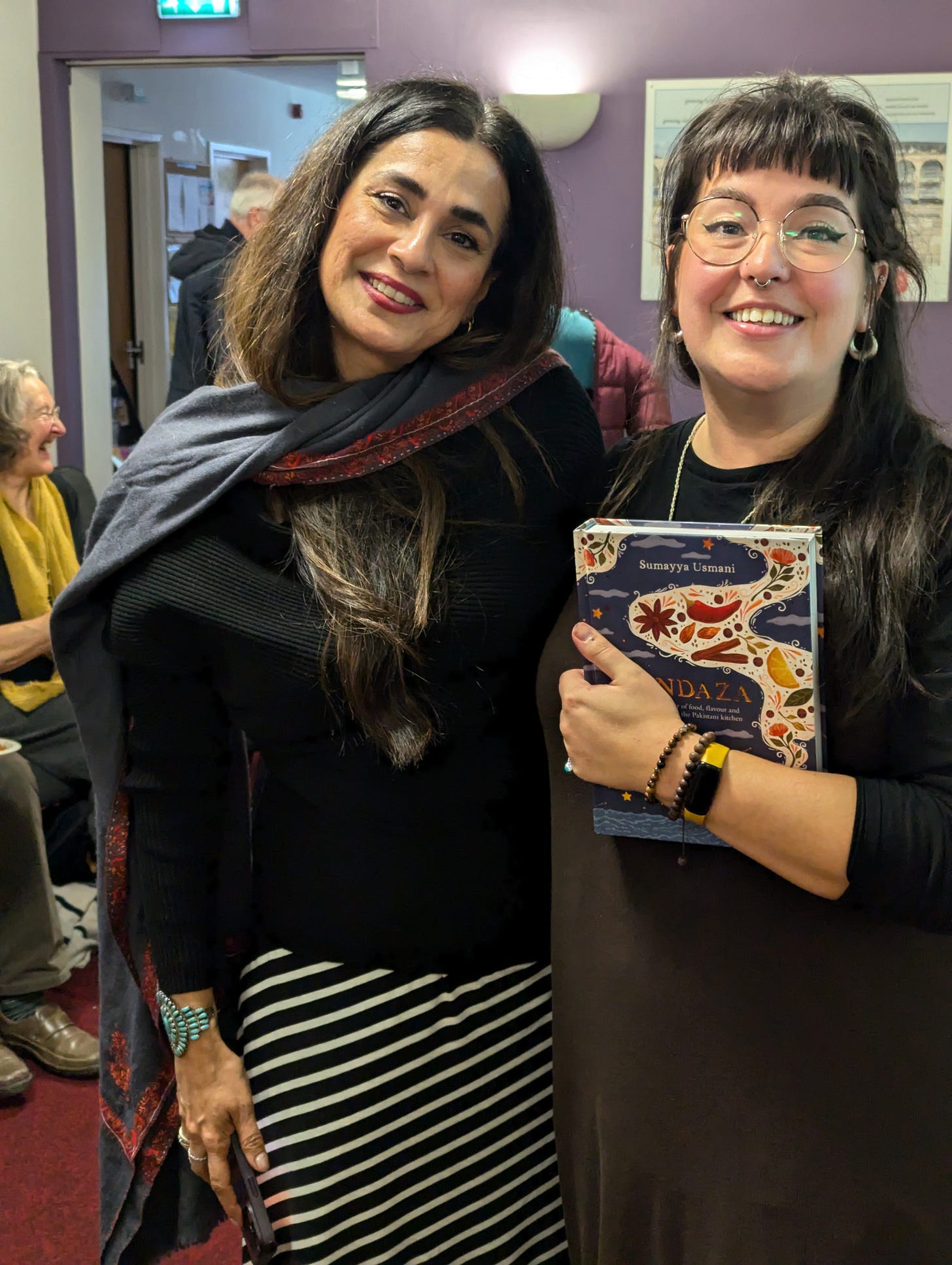I’m up early. My mind is too full. Bubbling with elusive connections that I want to write about but feel are too complicated to make sense of myself, let alone communicate to others. And yet, and yet…
These last few days, Berwick Literary Festival has been in full swing. Usually, I’m interviewing an author or two for the Festival. But I had my gig back in August, interviewing Michael Palin - (more on that here and here) so, this time round, I’m a happy punter.
I’m thinking about displacement, about connections, about belonging and otherness. In a world where there’s so much disruption - physical and emotional - how do we seek to draw together to reconnect, to get over the terrible wrongs, the misunderstandings, the schisms? How do we maintain a balance of individual and national identity? How do we quantify what is ‘ours’ against the value and dignity of others’ ‘mine’ and find a sum that transcends neglect or denial or revenge as ‘justice’?
Speaking to Millie McRobbie at Berwick Literary Festival,
articulated beautifully the sense of abstract loss of belonging through growing up on ships and in Pakistan. A life drawn by arbitrary lines and decisions that have left her in a suspended state of wistfulness. Where does she ‘belong’? How does she feel about identity and self? She seeks various ways to explore and define and redefine this dislocation, described eloquently in her Substack on the idea of belonging.In her beautiful book Andaza Sumayya weaves stories of memory and familial relationships. Through the power of cooking and food, she conjures and creates connections with time, place and people. Andaza, Sumayya explained, means intuition - the idea that, rather than relying on written recipes and precise measurements, you feel how much of this spice and that condiment to add. You taste and shape your meal according to what you have learnt at (often/usually) your mother’s or grandmother’s shoulder. This learning, just like the blending of flavours happens almost by osmosis.
Sumayya and Millie at Berwick Literary Festival - what a team!
I remember, as a child, drifting in and out of the kitchen, impatient to ‘do’ something - but not in the kitchen. In the kitchen: the scent of hot butter and seared meat, rich gravy bubbles popping thickly in a pan on the stove, my mother whipping around the work surfaces, rolling pastry here, chopping carrots and potatoes there. The creation of an endless stream of roasts, stews and steamed and baked puddings to be served with Bird’s custard. Attention was only available through either getting in the way or picking up a spoon and stirring something. The latter was always the safest option.
I remember fragments of conversations, but it’s the actions that stick: greasing of cake trays with empty butter or lard wraps, spooning of cake mix into paper cups and hot sweet peaks rising behind the glass of the oven door. As I got older, I do remember Mum repeatedly saying: ‘you were never interested in cooking’. Whatever the truth is, I learnt so much about cooking with love and energy and dedication from her. And, oh! What an act of love and generosity cooking for family, for friends, for strangers can be.
In another session at the Festival, Ash Amin talked about his book After Nativism: Belonging in an Age of Intolerance with Scott Sherrard. It was the kind of conversation that makes your head hurt and leaves you with a sense of fragile hope. In this case, the glint of optimism was balanced by the corporate and national power systems that we have embraced as our fundamental life structures (my recent Substack Breathe in the fresh air… but don’t forget your purse touches on similar themes).
Is there an equation where the sheer humanity of community and intuitive compassion can answer the seeming rise in intolerence and nationalism? Where coexisting means removing borders rather than creating them? Where acceptance, shared space and shared resources are the norm?
When I got together with my now husband, my eldest daughter - who was about 13 - found it tough. I remember saying to her (repeating someone else’s words, can’t remember whose): ‘Just because I love him, no one’s expecting you to. You don’t even have to like him. But life would be so much nicer for you - for us - if you found a way to tolerate his presence.’
Ash Amin talked of communities getting on with life, surmounting many of the perceived turbulences by ‘rubbing along’ - and I guess that’s what I was saying to my daughter. And, fantastically, she and The Husband get along superbly these days.
I should also say that my daughter didn’t take against The Husband because of who he was, but rather becasue of the perceived threat he presented. She and I had been on our own, jogging along like an old married couple, for ten years. What a disruption to have this new person introduced into our tightknit world. As so often, the benefits were worth the pain. The Husband was particularly useful in helping deliver a good grade in Latin GCSE.
My heart and mind is turbulent with questions and possibilities. I am weary and restless. But I embrace that. I am glad to have listened to and engaged with people who have opened my mind and heart once more to ideas and subjects that I often shy away from because they feel too complex, too overwhelming, too tiring to visit and revisit.
Till next time






It was such a pleasure to meet you. This is lovely, thank you x